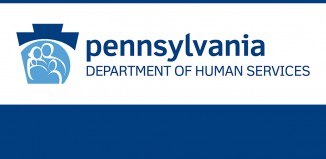Input Needed: Proposed Regulations for Adult Protective Services Programs

The Administration for Community Living (ACL) is seeking input on a proposed rule to establish the first-ever federal regulations for adult protective services (APS) programs. Instructions for submitting comments and registering for an informational webinar can be found on ACL’s website and below.
APS programs across the country support older adults and adults with disabilities who experience, or who are at risk of, abuse, neglect, self-neglect, or financial exploitation. APS programs investigate reports of maltreatment; conduct case planning, monitoring, and evaluation, and provide, or connect people who have experienced maltreatment to, a variety of medical, social service, economic, legal, housing, law enforcement, and other protective, emergency, or support services to help them recover. Over the past decade, ACL has led federal efforts to support the critical work of APS programs through a variety of initiatives.
First-Ever Federal Regulations for APS
The proposed rule aims to improve consistency and quality of APS services across states and support the national network that delivers APS services, with the ultimate goal of better meeting the needs of adults who experience or are at risk of maltreatment. To those ends, the proposed rule:
- Establishes a set of national standards for the operation of APS programs that all state APS systems must meet. These standards formalize — and build upon — the existing National Voluntary Consensus Guidelines for State APS Systems.
- Establishes common definitions for the national APS system to improve information sharing, data collection, and standardization between and within states.
- Requires state APS systems to develop policies and procedures, consistent with state law, for coordination and sharing of information to facilitate investigations with other entities, such as state law enforcement agencies and state Medicaid agencies.
- Requires state policies and procedures to be person-directed and based on concepts of least restrictive alternatives.
- Establishes requirements for data collection, retention, and reporting.
- Establishes requirements for mandatory staff training and ongoing education on core competencies for APS staff and supervisors.
ACL has created a fact sheet with highlights of key provisions of the rule, and the full text of the proposed rule can be found on the Federal Register website.
Input Needed
The proposed rule is the culmination of many years of engagement with stakeholders from APS and long-term care ombudsman programs, as well as disability advocates, from across the country. It also reflects input received through several listening sessions, extensive research, and analysis of data from a 2021 survey of 51 APS systems, ACL’s National Adult Maltreatment Reporting System, and policy profiles from APS programs in all states and territories.
ACL now seeks feedback on the proposed rule from all who are interested in improving implementation of APS programs and services. Input from the aging and disability networks and the people served by APS programs is particularly crucial.
Comments will be accepted for 60 days, beginning when the proposed rule is officially published in the Federal Register (which currently is scheduled for Tuesday, September 12). Instructions for commenting, along with the comment deadline, can be found in the Federal Register notice and on ACL’s website.
An informational webinar will be held on Monday, September 18, at 11:30 am ET. Advance registration is required.
For additional questions, contact Fady Sahhar.










